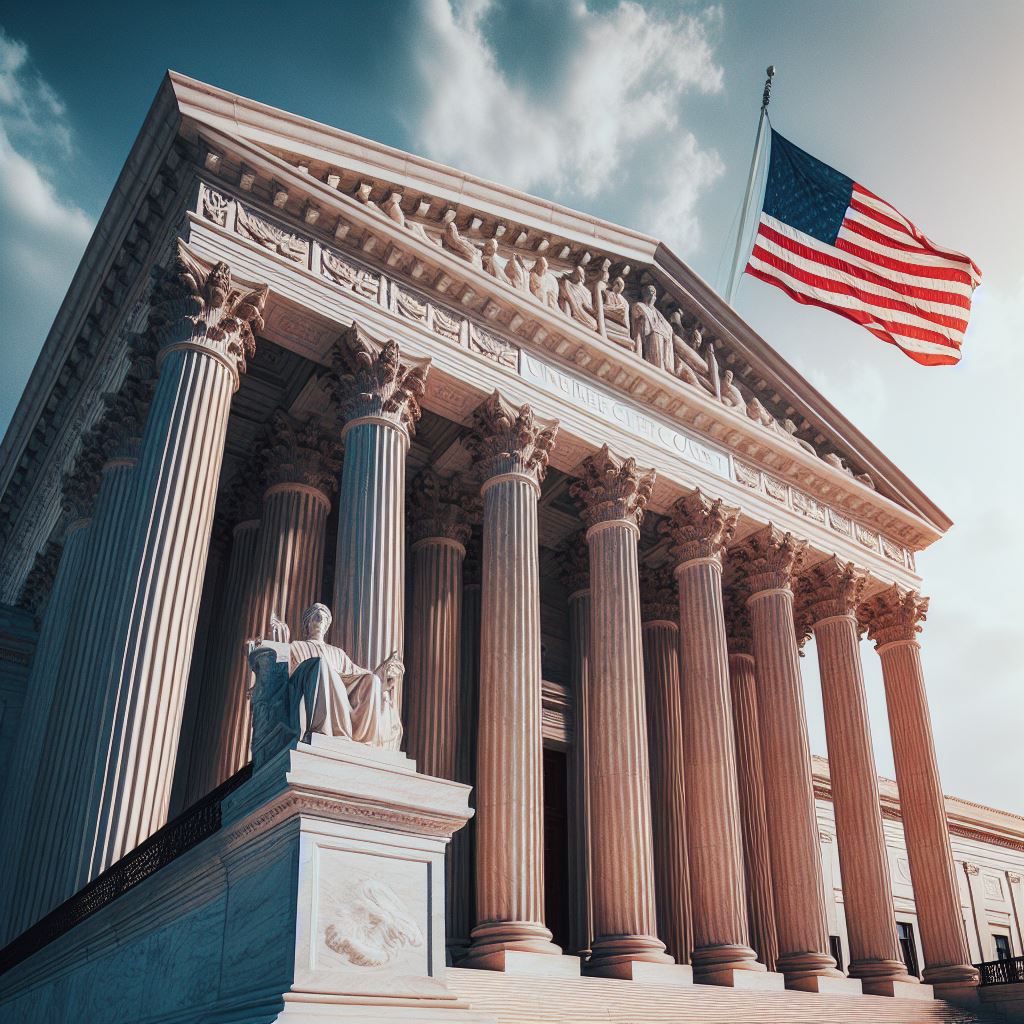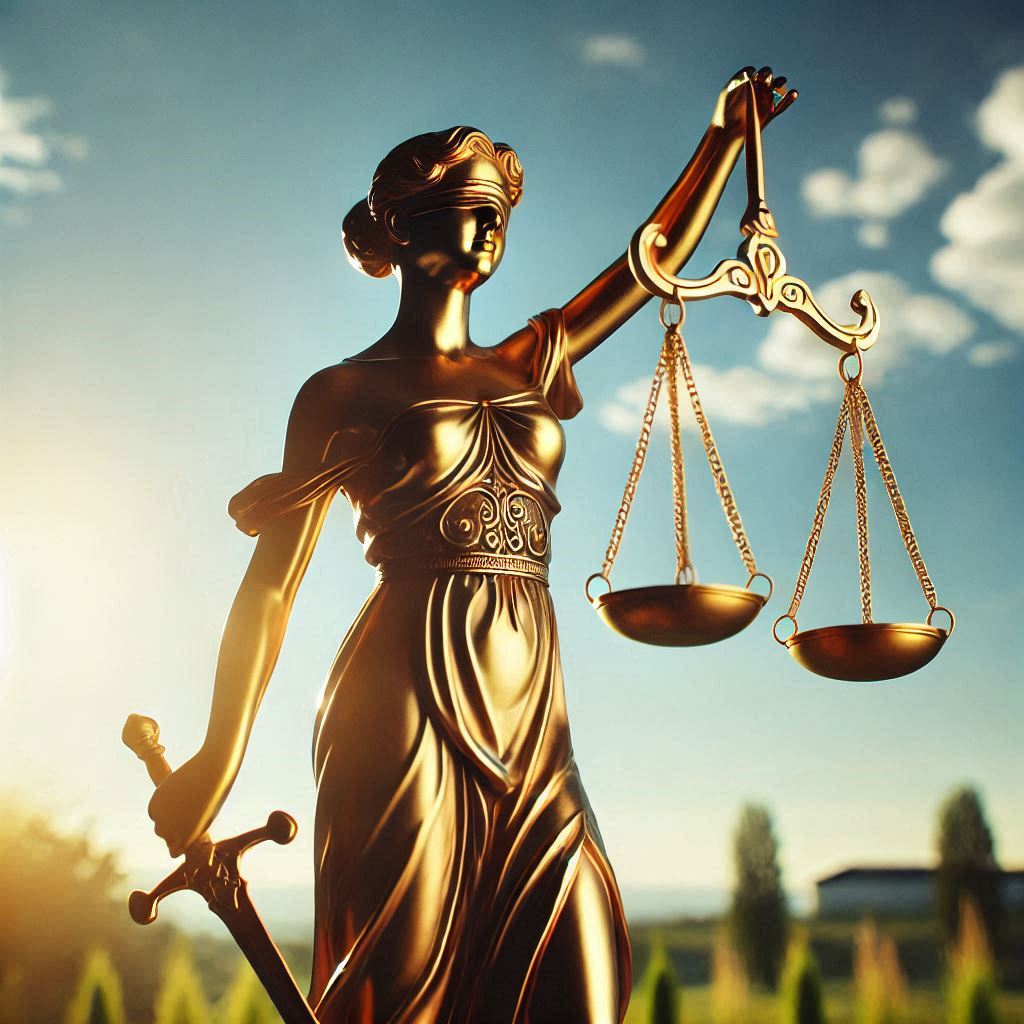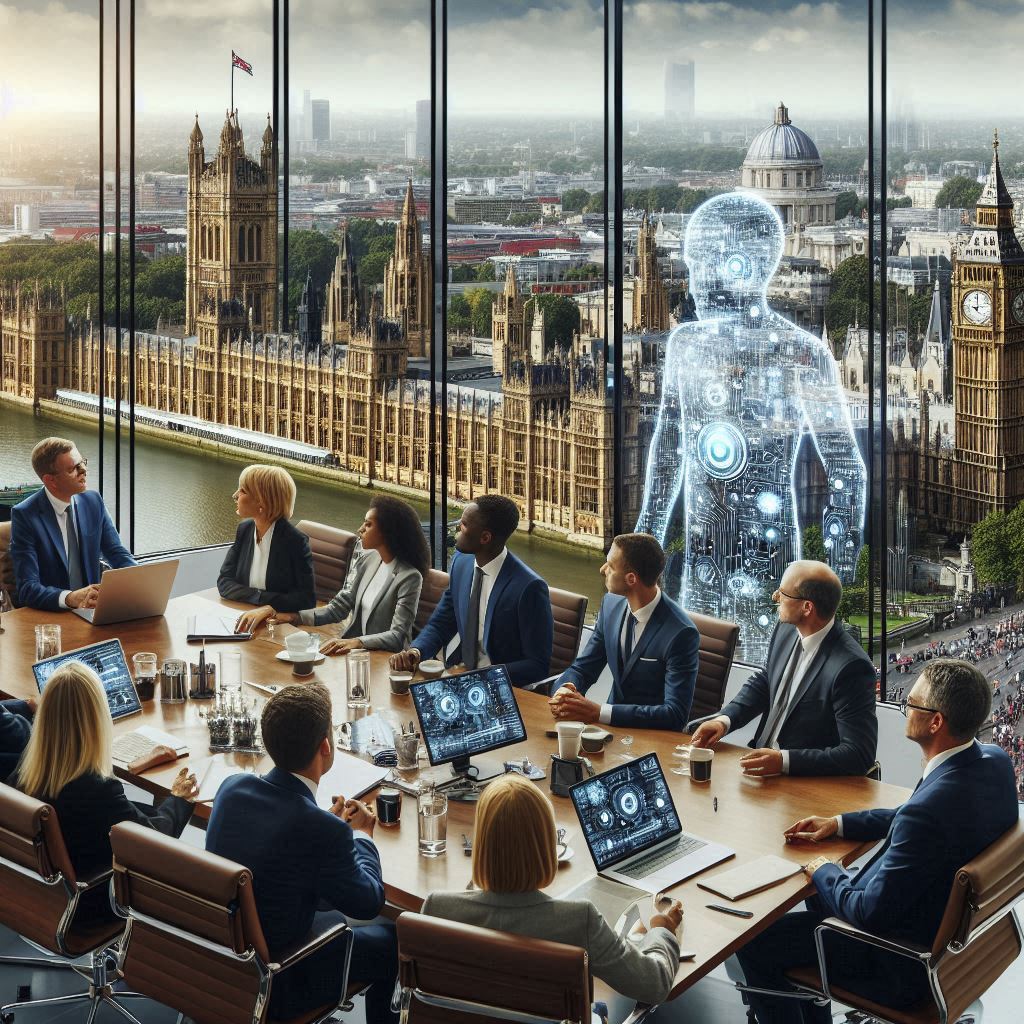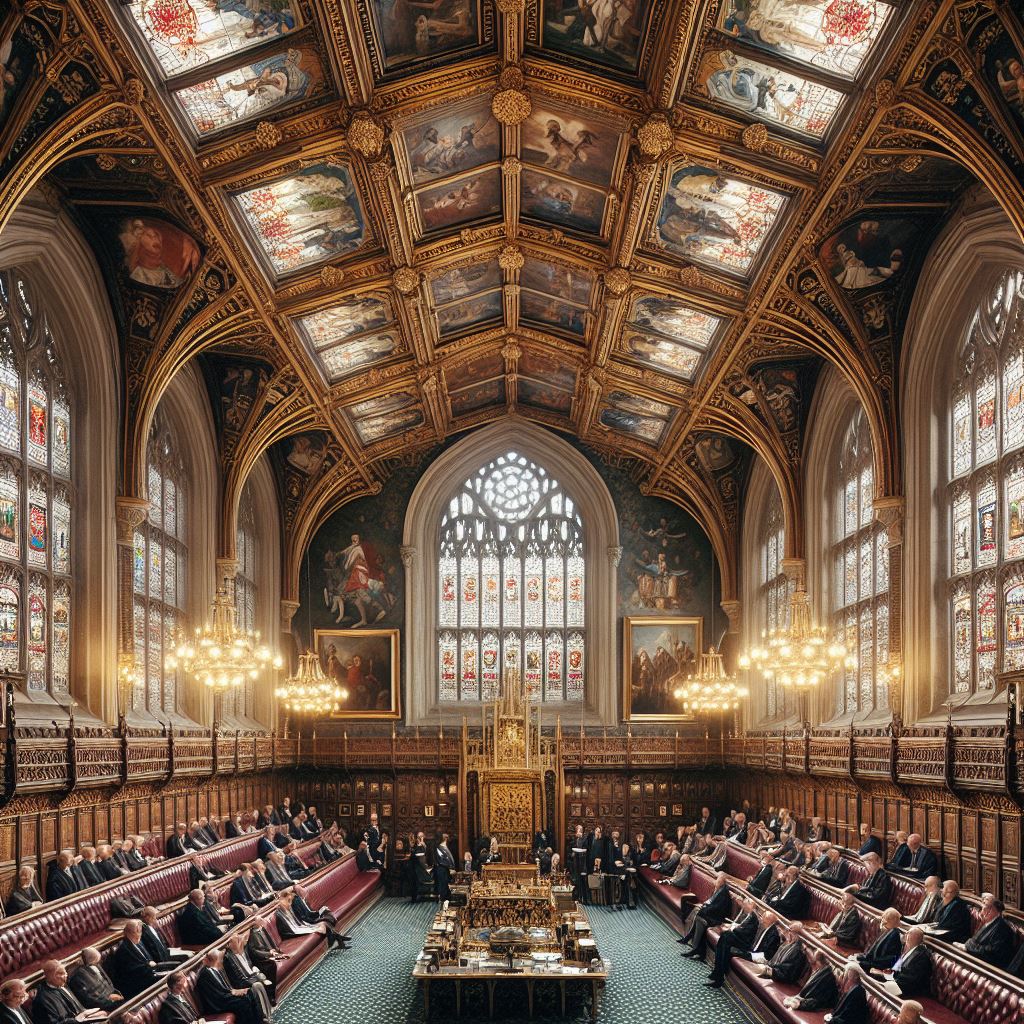Challenges to the Rule of Law
On 3rd December last year, South Korean President Yoon Suk Yeol declared martial law. Yoon claimed this action was in response to the growing threat of North Korean aggression. He has since been driven from office, and his arrest has been sanctioned by the judiciary. Nearly four years earlier, supporters of the outgoing US President Donald Trump stormed the Capitol building in Washington D.C. President Trump held a rally on the Mall shortly before rioters looted the seat of the US legislature. Over the last year, the former President and current President-elect has been in court over alleged business fraud, bribery, and insurrection.
Constitutions are the rules and institutions that make up the government. Their purpose is to ensure governments work effectively and, crucially, to prevent the abuse of power. This article will discuss recent challenges to a key constitutional principle: the rule of law. Firstly, we will discuss the ongoing martial law and impeachment crisis in South Korea. We will then discuss how the US constitution allows a convicted felon to take up the Presidency. Finally, we will address the importance of the rule of law and the choice faced by democratic citizens across the world. Overall, this article will show that the rule of law is a crucial principle for ensuring the preservation of individual liberty and democracy.
What does Yoon’s declaration of martial law mean for the rule of law?
The rule of law forms a part of South Korea’s constitutional law, with the constitution guaranteeing that all ‘citizens shall be equal before the law’.[1] A core feature of the rule of law is maintaining legal equality between citizens. This means that those in power cannot abuse their position to claim exemptions from the law. The constitution compels newly elected presidents to fulfil the core duties of ‘observing the constitution’, ‘defending the State’, and ‘promoting the freedom and welfare of the people’.[2] Compelling the president to adhere to these values represents their importance in Korean constitutional culture, but it also sets legal criteria by which a president’s actions can be assessed.
A core aspect of South Korean constitutional law and culture is the requirement and expectation that the president’s actions must only be those that are permitted by the constitution. These values are backed up by the impeachment process. The president, as well as a number of other government officials, can be impeached when they have ‘violated the Constitution or other laws in the performance of official duties’.[3]
South Korea has a turbulent recent history when it comes to democracy and the rule of law. From 1910 until the end of the Second World War, Korea was occupied by the Japanese Empire. The Republic of Korea was created in 1948, but quickly fell into authoritarianism following the Korean War (1950-53). For much of the second half of the twentieth century, South Korea was governed by a military dictatorship. It was only in 1987 that the line of military dictators came to an end and democracy was established. The country’s first free elections were held in 1988. It is now one of the most highly developed economies in east Asia.
I am inspired by the courage of the hundreds of thousands of South Korean citizens who took action against what they believed to be violations of democracy and the rule of law.
In 2022, Yoon won the presidential election with 48.6% of the vote, beating the outgoing liberal Lee Jae-myung’s 47.8%. Yoon is a conservative and former chief prosecutor. In 2016 he was involved in the prosecution of former president Park Geun-Hye for corruption. While chief prosecutor, he faced allegations of misconduct, corruption, and abuse of power. Yoon’s presidency has been mired by allegations of corruption against his wife. He has been unable to exercise much governing control since his party lost the parliamentary elections to the opposition in November.
In an unwelcome echo of its twentieth century authoritarian past, South Korea is facing a challenge to democratic constitutional government. President Yoon Suk Yeol declared martial law on 3rd December 2024, claiming that North Korean aggression made this necessary. In doing so, he sought to take control of the state by using the emergency powers the Constitution grants the President under martial law.
Article 77 of the constitution empowers the president to declare martial law when ‘it is required to cope with a military necessity or to maintain the public safety and order by mobilization of the military forces in time of war, armed conflict or similar national emergency.’[4] Hundreds of thousands of Koreans protested Yoon’s martial law declaration, with some estimates saying as many as 500,000 took the streets in protest.
It is encouraging that the principles and ideas that together comprise the rule of law are held in such high regard in South Korean culture. The Koreans’ reaction to their President’s illegitimate use of the powers the constitution granted him should be taken as an inspiration to citizens of all jurisdictions across the world. The key to maintaining democracy is not found in laws or institutions. It is found in their ardent defense by ordinary people. Every individual must live up to their duty to speak out in defense of democracy and civil liberties.
What does the US Constitution say about the President and the rule of law?
With significant links to the English common law tradition, a central value underpinning the US Constitution is the rule of law. If a President is found to have committed a crime, the rule of law requires that he should face the same legal consequences as any other citizen. While there is no single clause that outlines the rule of law, the US Constitution provides a legal framework that is based upon this fundamental principle.
The Constitution makes it clear that the President is not above the law, but is subject to it.[5] Article II requires the President to swear to ‘preserve, protect and defend the Constitution’.[6] This positions the President as an office within the constitution, rather than above it. The Constitution, which is the fundamental law in the United States, is the supreme power, not the President.
Like everyone else, the President is subject to and must act within the provisions of the Constitution. The President is also required to ensure that ‘the Laws be faithfully executed’,[7] meaning they have to take an active role in the implementation of the Constitution. The President is not simply a passive bystander witnessing the constitution, but an active conduit that brings it into reality. All laws passed by Congress, actions committed within the executive, and officials appointed throughout the federal government must abide by the Constitution – it is the President’s duty to make sure this happens.
Historically, the United States has held freedom and the rule of law as core aspects of its constitutional culture. From the Founding Fathers, illegitimate use of power such as ex post facto laws, arbitrary suspensions of habeas corpus, and holding trials without a jury have been denounced as unconstitutional.[8] In the 1860s, violent civil conflict led to the resolution of a longstanding dispute about the place of slavery in American society. Hundreds of thousands of Union soldiers fought to end the ownership and vile treatment of other human beings.
From the late nineteenth century the US was at the forefront of international efforts to enshrine basic rights and freedoms in law. The United States took a leading role in the Geneva Conferences, the 1899 and 1907 Hague Conferences, and was the driving force behind the creation of the Universal Declaration of Human Rights in 1947. Millions of Americans travelled across the Atlantic to fight against tyranny, imperialism, and crimes against humanity to fight in the First and Second World Wars.
At the centre of the value American’s place upon freedom and civil liberty is the Constitution. This document enshrines these values at the core of American culture and political discourse. Above all, they embed them in the underlying common law principle of the rule of law.

Last year the US Supreme Court dismissed claims Trump had incited insurrection.
Click here for our perspective.
It is because of the supreme value American’s have bestowed upon the rule of law for so long that the world was stunned on 6th January 2021. Not since the War of 1812, when British-Canadian troops burned down the White House, has such violent damage been wrought upon the home of a fundamental branch of the federal government. Four years later, the world watches as the hero of many of the January 6 rioters – a man facing numerous civil and criminal cases and is a convicted felon – prepares to return to the Presidency.
How is it that, one by one, the cases against Donald Trump have either been dropped or have resulted in non-custodial sentences? This is largely because the US Department of Justice has a standing procedure that prevents it from prosecuting sitting Presidents. This procedure poses a serious challenge to the rule of law, a fundamental principle of the US Constitution.
Some argue that the President should not be able to be prosecuted as this would allow partisan or politically minded people to bring cases against them, weaponizing the legal system to remove Presidents they do not like. Americans must decide whether protecting the President from ill-intentioned legal action is worth suspending a central value of their constitutional culture.
What does this mean for the rest of us?
Americans have the opportunity before them to live up to their democratic ideals. The rule of law is a principle that generations of Americans have shed blood to create, uphold, and share with those who aspire to live in a democratic state elsewhere in the world. Every citizen in a democratic country has the right to vote, to have their voice heard, to be free from the abuse of power. With these rights comes the duty to hold the government and its officials to account. Taking inspiration from their democratic peers in South Korea, US citizens should seriously scrutinize the way the judiciary has handled the cases against President Trump.
This is not a judgement about who should be President of the United States of America, nor a criticism of the democratic choice US citizens have made. As a British citizen, it is not for me to call for specific action in the other countries. However, like many others across the democratic world, I worry about the current position of the rule of law in the United States. Three years ago, then prime minister Boris Johnson and his chancellor Rishi Sunak were fined for breaching lockdown restrictions – like any other UK citizen, they were punished when they broke the law. While things are not perfect in the UK, it is right that these leading figures were held to the rule of law.
I want to live in a country where political leaders are held to the same standards as everyone else – where they cannot escape justice. I am inspired by the courage of the hundreds of thousands of South Korean citizens who took action against what they believed to be violations of democracy and the rule of law.
I hope that all citizens and supporters of democracy, in all countries, find their commitment to these principles equally galvanizing. Institutions, good-natured political leaders, and laws are no protection of constitutional liberty or the rule of law without the collective action of citizens. All citizens in all countries who consider themselves supporters of democracy must hold their government, its officials, and its systems to the highest possible standards.
[1] Constitute Project, Korea (Republic of) 1948 (rev. 1987), <https://www.constituteproject.org/constitution/Republic_of_Korea_1987> [accessed: 11/01/2025], Art. 11.1
[2] Korea (Republic of), Art. 69.
[3] Korea (Republic of), Art. 65.1.
[4] Korea (Republic of), Art. 77.2.
[5] National Constitution Center, The United States Constitution, <https://constitutioncenter.org/the-constitution>, [accessed: 11/01/2025].
[6] United States Constitution, Art. II, s.1.
[7] United States Constitution, Art. II, s.3.
[8] E.g., Alexander Hamilton, ‘The Federalist No.84’, The Federalist Papers, (1788).



